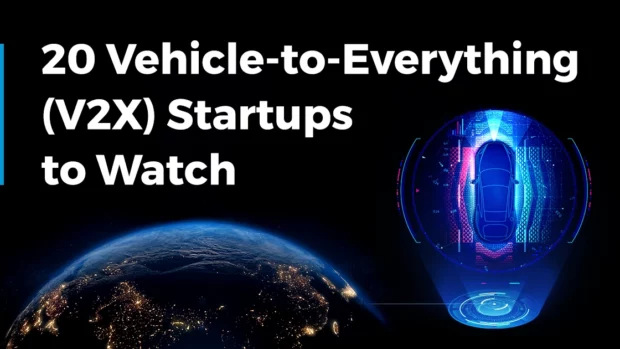Auto crash tests are critical in ensuring the safety of vehicles on the road. As technology advances and the automotive industry evolves, crash test procedures and standards have also adapted to provide more accurate safety assessments. This article delves into the latest insights surrounding auto crash tests, highlighting the cutting-edge innovations in testing technology, the safety ratings of popular car models, and the role of autonomous driving features in crash test results. We’ll also explore consumer reports on vehicle safety and take a look at future trends shaping the industry. Finally, we’ll spotlight the top automakers that are setting new benchmarks in crash test performance and vehicle safety for 2024.
creditpert.com offers a detailed exploration of this topic.
1. Overview of Auto Crash Test Procedures and Standards
Auto crash tests are designed to assess vehicle safety by simulating real-world collisions. Conducted under controlled conditions, these tests adhere to strict procedures established by organizations like the U.S. National Highway Traffic Safety Administration (NHTSA) and Europe’s European New Car Assessment Programme (Euro NCAP).
Standard crash tests simulate various accident scenarios, including front, side, and rear impacts, as well as rollovers. These tests are designed to assess a vehicle’s ability to safeguard its occupants during a collision. Crash test dummies, fitted with sensors, are positioned inside the vehicles to collect data on potential injuries that passengers might sustain.
Vehicles undergo rigorous testing to assess their structural integrity, safety features such as airbags and seatbelts, and overall crashworthiness. These evaluations culminate in safety ratings, typically represented by stars, which provide consumers with a clear way to compare the safety performance of different models. These tests not only ensure vehicles meet essential safety standards but also encourage manufacturers to incorporate cutting-edge safety technologies, including advanced driver assistance systems (ADAS), to enhance vehicle protection in the event of an accident.

2. Latest Innovations in Crash Test Technology
Advances in crash test technology have revolutionized vehicle safety evaluation, enabling more accurate and detailed assessments. A key innovation is the use of advanced crash test dummies, known as biofidelic dummies, which closely replicate human anatomy. These sophisticated dummies are equipped with hundreds of sensors that collect precise data on potential injuries, including impacts to the head, neck, chest, and limbs.
The advent of computer simulations has dramatically transformed crash testing. Virtual crash tests enable manufacturers to simulate a wide range of crash scenarios, optimizing vehicle design before physical prototypes are even built. This innovative approach not only saves time and resources but also significantly enhances vehicle safety by allowing for more comprehensive testing of diverse crash types.
Advanced technology plays a vital role in enhancing automotive safety. Automated testing rigs and high-speed cameras, capturing collisions from multiple angles in extreme slow motion, provide engineers with unparalleled insights into impact dynamics. The integration of artificial intelligence (AI) further elevates crash data analysis, efficiently identifying potential design flaws in vehicles. This combination of cutting-edge technology and real-world crash tests relentlessly pushes the limits of automotive safety, guaranteeing the highest level of passenger protection.

3. Comparative Safety Ratings of Popular Car Models
Vehicle safety is paramount, and crash test ratings offer consumers crucial insights into how different car models perform in collisions. Organizations such as the National Highway Traffic Safety Administration (NHTSA) in the United States and the European New Car Assessment Programme (Euro NCAP) in Europe conduct rigorous crash tests and assign safety ratings, typically on a scale of one to five stars. These ratings provide a straightforward way for consumers to compare vehicles and choose the safest options available.
The year 2024 has seen several car models achieve exceptional safety ratings. The Volvo XC90, for instance, consistently earns top marks thanks to its robust construction and advanced safety features, including automatic emergency braking and lane-keeping assistance. Similarly, the Tesla Model 3 continues to impress with its high safety scores, largely attributed to its innovative driver-assistance technologies and crash-resistant design.
Mid-size sedans, such as the Honda Accord and Toyota Camry, consistently demonstrate their reliability and safety. They excel in crash tests, particularly in front and side-impact simulations. This combination of affordability and safety makes them a popular choice for families.
By comparing safety ratings among these models, consumers can make informed decisions, opting for vehicles that provide the highest level of protection for themselves and their passengers.

4. Impact of Autonomous Driving Features on Crash Test Results
Modern vehicles are increasingly incorporating autonomous driving features, which are significantly influencing crash test outcomes. These features, including adaptive cruise control, automatic emergency braking, and lane-keeping assist, aim to prevent collisions or mitigate their impact. Consequently, cars equipped with these technologies generally achieve superior results in crash tests.
For example, automatic emergency braking mitigates the severity of an impact by decelerating the vehicle prior to a collision. This reduction in force leads to less damage to the vehicle and lowers the risk of injury for its occupants. Lane-keeping assist, on the other hand, helps prevent accidents caused by unintentional lane departures, particularly beneficial in situations where side-impact or rollover collisions are more likely to occur.
The advent of autonomous driving features has spurred the creation of new testing protocols. Organizations like Euro NCAP now incorporate evaluations of these technologies’ effectiveness in preventing accidents into their safety ratings. Though these systems are not infallible, they signify a notable advancement in vehicle safety, augmenting traditional crashworthiness. As autonomous capabilities continue to mature, they are expected to exert an even greater influence on enhancing crash test outcomes and overall vehicle safety.
5. Consumer Reports and Feedback on Vehicle Safety
Beyond the results of crash tests, consumer reports and feedback are essential for understanding vehicle safety. Safety ratings offer a technical perspective, but real-world experiences provide invaluable insights into how vehicles perform in various driving situations. Features like automatic emergency braking, blind-spot monitoring, and adaptive cruise control are highly sought after by consumers when selecting a new car, and their feedback often underscores the effectiveness of these systems in averting accidents.
Subaru Outback and Honda CR-V owners have lauded their vehicles for fostering a sense of security, highlighting the dependability of safety features in everyday driving. Nonetheless, some consumers have expressed reservations regarding the responsiveness of specific systems, such as lane-keeping assist, which can sometimes exhibit excessive assertiveness.
Manufacturers rely on consumer feedback to enhance their safety features and identify potential problems in upcoming models. This feedback, when coupled with official crash test data, provides prospective buyers with a complete picture of which vehicles excel in safety performance during everyday driving conditions.
6. Future Trends in Vehicle Safety and Crash Testing
Emerging technologies and evolving industry standards are poised to redefine the future of vehicle safety and crash testing. A key trend is the integration of artificial intelligence (AI) and machine learning into both vehicle design and crash testing simulations. These tools empower manufacturers to predict vehicle performance in diverse crash scenarios, facilitating more efficient testing and accelerating the development of innovative safety features.
Furthermore, the rise of electric and autonomous vehicles necessitates an evolution in crash testing methodologies. Electric vehicles, due to their distinct battery configurations and weight distribution, pose novel challenges in assessing crashworthiness. Conversely, while autonomous vehicles are projected to diminish accidents, testing their dependability and safety remains paramount.
Furthermore, the drive toward sustainability could result in the use of safer, lighter materials in car production, ensuring no compromise in vehicle strength. In conclusion, future advancements in vehicle safety strive to create vehicles that are more intelligent, secure, and better prepared to safeguard passengers in any scenario.
7. Top Automakers Leading in Safety and Crash Test Performance
Several automakers are leading the industry in safety and crash test performance, setting high standards for vehicle protection. Volvo, a top performer, is renowned for its rigorous safety measures and innovative technologies. Models like the XC90 and S60 consistently earn high ratings. Similarly, Tesla has made a significant impact with the Model 3 and Model Y, both achieving impressive safety scores due to their advanced driver-assistance systems and robust crash structures.
Subaru distinguishes itself, especially with its Outback and Forester models, which are lauded for their comprehensive safety features and strong crash test results. Honda and Toyota are recognized for their consistent performance across a variety of vehicles, such as the Accord and Camry, which blend reliability with high safety ratings.
These automakers not only perform exceptionally well in crash tests, but also consistently invest in innovative safety technologies. Their commitment to advancement drives improvements throughout the automotive industry, setting a high standard for other manufacturers to emulate.
As vehicle safety continues to evolve, the integration of advanced technologies and innovations in crash testing is driving significant improvements. From enhanced crash test procedures and cutting-edge technologies to the impact of autonomous features and real-world consumer feedback, the automotive industry is making strides in protecting passengers. Future trends promise even greater advancements, with AI, electric vehicles, and sustainable materials shaping the landscape. By staying informed about these developments and considering safety ratings from leading automakers, consumers can make well-informed choices, ensuring that their vehicles offer the highest level of protection on the road.
creditpert.com


